Review for Three Films With Sammo Hung
Introduction
It’s odd how fame develops sometimes. There was a time when the Three Dragons were all on the same pedestal. Fans looked forward to the next film starring Jackie Chan, Sammo Hung, and Yuen Biao together, whether it was Project A, Wheels on Meals, or the Lucky Stars movies. Subsequently fame has been distributed in different proportions, something that is reflected in my Hong Kong cinema collection. Most of those discs feature Jackie Chan, and I even have a few of his Hollywood efforts (including Around the World in 80 Days). I have a handful of movies starring Sammo Hung, films like Warriors Two and the sublime Millionaires’ Express, but I have many more discs with him behind the camera, as director or action director. As for Yuen Biao vehicles, I have just a couple of DVDs, The Iceman Cometh, and Dreadnaught. That’s a balance that needs redressing, especially in this age of high definition, and Eureka are doing just that when it comes to Sammo Hung, by releasing three of his classic films on Blu-ray in this collection, The Iron Fisted Monk, The Magnificent Butcher, and Eastern Condors, uncut in the UK for the first time, and best of all, I haven’t seen any of them before.
You also get a 36 page booklet with the collection, which as well as offering stills, behind the scenes photos and promotional images for all three films, also offers writing on them from James Oliver.
Introduction: The Iron Fisted Monk
What is it with the need to translate proper names in subtitles? IMDB calls the character, Husker, while the Eureka subtitles call him Rice Pounder Six. Technically that was his job, working in a shop, pounding rice while his uncle Tak ran the storefront. That was until the day that the Manchu Bannermen came by, throwing their weight around. A fight ensued, Uncle Tak was killed, and Rice Pounder Six would also have died, were it not for a passing Shaolin monk who saved him, and beat his attackers black and blue. He told RPS to go to the temple in the mountains to train in the martial arts, with the hope that he would come back and be a champion in the face of Manchu aggression and bullying.
He reached a point in his training where he became impatient to leave, to get his revenge, and one day he broke the rules and snuck out of the temple. It wasn’t long before he found some bullies to deal with, picking on a handful of children. RPS was teaching one of them a lesson, when a grieving man named Ngau showed up and showed him the true price of revenge by murdering the bully then and there. Ngau’s sister was raped by the brother of a Manchu official, and she subsequently killed herself. Ngau has sworn to kill every Manchu bannerman he sees, but his first kill has devastating consequences for all.
The Disc: The Iron Fisted Monk
All three films get 2k restorations, but the audio options differ from disc to disc. The Iron Fisted Monk is clear and sharp on this disc, a 2.35:1 widescreen presentation which is properly filmic, free of print damage and signs of age, and great to watch. Detail levels are excellent for the most part, and if there is softness, it’s in the source rather than the transfer. There is also the odd anamorphic distortion at the edge of frame, most noticeable in panning shots. In terms of audio, you have PCM 1.0 mono Cantonese, PCM 1.0 mono classic English dub, and PCM 2.0 Stereo modern English dub. The subtitles are timed accurately, and are free of typos, although as mentioned, I did scratch my head at some of the proper name translations.
Extras: The Iron Fisted Monk
The disc boots quickly to a static menu.
On the disc, you’ll find an audio commentary by Frank Djeng, who used to work for the distributor Tai Seng. It’s a verbose and detailed commentary, and well worth listening to.
There are two interviews with Sammo Hung on The Iron Fisted Monk, one taken from an HKL disc lasting 9:35, and another running to 4:52.
Finally there is the theatrical trailer for the film, lasting 4:16.
Conclusion: The Iron Fisted Monk
If I told you that The Iron Fisted Monk delivers a whole load of kung-fu action and a decent dose of comedy as well, that probably means very little in the grand scheme of Hong Kong cinema, but Sammo Hung’s directorial debut does indeed deliver much in the way of brilliantly choreographed, and inventive martial arts action, interleaved with the ‘twinkle-in-the-eye’ comedy styling of a visual prankster. But one thing that I have noted about Sammo Hung movies before, directed, starring or both, is that there’s an unevenness of tone, an uncomfortable blend of comedy and drama that jars Western sensibilities, and it is more apparent in The Iron Fisted Monk than in any other of his films that I have seen.
It’s about revenge of course, most of these films are, although The Iron Fisted Monk changes things up by offering different motives for revenge. Usually it’s a collision of two Martial Arts schools, and a beloved master being betrayed and bushwhacked by an unprincipled rival, prompting an enraged student to learn a new style of kung-fu before seeking revenge. The scope in this movie is a lot larger than rival schools, focusing on the ruling Manchu throwing their weight around against the majority Han populace. This time Rice Pounder Six is forced to learn Martial arts when his uncle is murdered by a group of Manchu bullies, but by the time he’s ‘graduated’ from the Shaolin temple, you’d rightly expect his rage to have mitigated, and his revenge to have become more focused. The first Manchu that he encounters, bullying a bunch of children, are deserving of a beating, nothing more.
We need a fresh dose of infamy, and a villain to despise, and Iron Fisted Monk goes straight for the bull’s-eye with a scene that the BBFC previously considered too much for UK sensibilities. A rather gratuitous rape scene sees Ngau’s sister defiled, and then subsequently commit suicide, and when Ngau interrupts the beating to stab the Manchu to death, this puts in motion the main story arc of the film, a back and forth between the Manchu henchmen and Rice Pounder Six that leads to the traditional finale, where heroes face off against villains, and justice is served with fast flying punches and kicks.
I can see why the BBFC initially balked. Tonally the scene is all wrong, given the comic japery that had been taking place with the characters to that point, and even afterwards, there is room for some slapstick and silliness in a brothel. It sticks out like the proverbial sore thumb. There is another assault by the same character on another woman towards the end of the film, but by this point the momentum of justified revenge has built up, and any comedy has been left behind.
That unevenness of tone stayed with me long after the film had ended, much more so than the memory of actually enjoying the film. I did indeed have fun watching it. The action is choreographed inventively and the sense of humour really does hit the right places. But that scene does jar, and you can’t get away from the fact that in the end, the protagonists were only able to achieve a Pyrrhic victory. It is in the end, a real downer of a kung-fu action/comedy.
7/10
Introduction: The Magnificent Butcher
Lam Sai-wing is a butcher, but he’s also a student of the legendary Wong Fei-hung, which gives him certain kung-fu skills. Alas, it does nothing about his impulsive ability to pick the wrong side in an argument. Mistaking an argument about a board game for a case of theft, his act as a Good Samaritan embroils his master’s school in a row with Master Ko’s rival school. This only gets worse when Lam Sai-wing’s brother comes to visit, along with his wife, while Master Ko’s reprobate son returns and takes a shine to the wife. One thing leads to another, and with Master Wong out of town, and with Lam Sai-wing framed for the murder, Lam Sai-wing’s only hope lies in the martial arts teachings of a passing alcoholic beggar.
The Disc: The Magnificent Butcher
The second film in this collection gets a transfer which is even more impressive. The 2.35:1 widescreen 1080p image is delightfully crisp, rich with detail, and free of any print damage, signs of age, or digital artefacts. The sets and locations are brought to life with impressive fidelity, character skin tones are natural, and the work of the costume department is appreciable. You have four flavours of mono audio here, the original Cantonese track, an alternate Cantonese track, the original English dub, and a modern English dub track, all in PCM 1.0 format. I stuck with the original Cantonese for the duration, and was happy with the experience, the dialogue was clear, the action came across well, and the music suited the film, except for one, rather unexpected burst of the Popeye theme.
Extras: The Magnificent Butcher
The disc boots to a static menu.
You get an engaging audio commentary from Mike Leeder and Arne Venema.
There are two interviews with Sammo Hung, the first lasting 12:51, and the second lasting 7:20.
There is a larger contribution from director Yuen Woo-ping, which lasts 20:14, and of course there is the theatrical trailer lasting 4:23.
Conclusion: The Magnificent Butcher
Things are coming together a bit more in 1979, two years after Iron Fisted Monk. Of course, when you have Yuen Woo-ping in the director’s seat, things go up another level. The Magnificent Butcher is another great action comedy, with some wonderfully inventive kung-fu fight sequences. There is an elegant sequence early on, with two masters trying to make a philosophical point with calligraphy brushes, that catches the attention, and once the nameless beggar joins proceedings, things certainly get raucous, including a bit of fart-fu. The Magnificent Butcher is a solid, rounded film which, while it plays in the traditional sphere of kung fu masters, and rival schools, does enough that is different from the usual clichés to become a memorable film.
It does feel a lot like a Jackie Chan movie, and not just for the character connections to Drunken Master. Lam Sai-wing very much is a typical Jackie Chan character. When we first meet him, he’s confident in his abilities, over-confident even, a playful trickster, and there is a lot of fun to be had seeing him get one over on his friends (including a small but significant role for Yuen Biao) and rivals, as well as occasionally suffering when he gets caught out on his pranks. But events transpire to bring him back down to earth with a sudden deluge of tragedy and humility, resulting in him seeking a new way to fight back at the climax of the movie, when all semblance of humour is set aside for a serious battle.
Once again however, villainy has to be expressed with a rather, shall we say, misogynistic short-cut. I do feel sorry for actor Fung Hark-On, who’s certainly been typecast in this Blu-ray collection at least. Thankfully The Magnificent Butcher is structured in a way that is less tonally dissonant than Iron Fisted Monk. Things are all light and fun, until tragedy strikes, and thing remain largely serious thereafter until the climax.
Once again, Eureka have presented a classic kung fu movie with stunning image quality and robust sound quality. I grew up watching these films on creaky, pan and scan VHS tapes with dodgy dubs, and I never for once imagined that I’d see them in this sort of quality, not even when Hong Kong Legends were releasing some great DVDs that still occasionally had to compromise on source material and aspect ratio. I see something of the amazing, filmic quality of The Magnificent Butcher, and no longer envy those who originally got to see it in the cinema.
8/10
Introduction: Eastern Condors
1976, and America has been soundly, and derisorily driven out of Vietnam. Just one problem; they left a heap load of ordnance behind, and to say it would be embarrassing for it to fall into the wrong hands would be an understatement. They decide to be discreet about it, send in a crack squad of Chinese Americans to get in there, destroy the arsenal, and get out again, easily disavowed if captured. They’ve also decided to recruit from some long sentence prisoners, illegal immigrants, with the promise of amnesty, money and US citizenship if they succeed. Things start going wrong from the first moment though.
The Disc: Eastern Condors
This’ll sound like a single on repeat, but once again, I can’t fault the transfer. Eastern Condors looks spectacular on this 2.35:1 widescreen 1080p disc. The image is clear and sharp, detail levels are excellent, and the action comes across well, with no signs of compression or artefacting. You have the choice between PCM 1.0 mono Cantonese original, Alternate Cantonese, Classic English dub, and a PCM 2.0 Stereo Modern English dub. You also get English subtitles The sets and locations are pretty impressive and lavish for a Hong Kong movie, and the action sequences, both martial arts and otherwise are choreographed well. All that I could find out of place were some of the slow motion sequences, which I felt broke up the flow of the action.
Extras: Eastern Condors
The disc boots to a static menu.
Here you will find the Export Version of Eastern Condors which runs to 94:43 HD and with a DD 1.0 English mono track.
There are two audio commentaries on the main feature, one with Mike Leeder and Arne Venema, and the other with Frank Djeng.
Featurettes on this disc include Sammo Hung on Eastern Condors (16:44), Sammo Hung on Jackie Chan & Yuen Biao (6:04), and a Yuen Wah Interview (7:54).
There is the Original Opening and Closing Credits for the film (3:59), and the Teaser, Original Hong Kong, and Japanese trailers.
What I found most fascinating was the Eastern Condors Live, which lasts 13:46, and is a stage event featuring the cast of the film, performed live, reimagining the film in a theatre format. It might give some idea of what the Peking Opera was about (although probably without the machine guns).
Conclusion: Eastern Condors
If you’re anything like me, you’ll start by seeing the references and homage in a film (rip-offs if you want to be indelicate), and if they’re too obvious, they can throw you out of a film. Eastern Condors obviously wants to be The Dirty Dozen. It obviously wants to be The Guns of Navarone, it wants to be The Deer Hunter, it wants to be Rambo... That level of referencing can violently eject me out of a movie, or make me look at it as if it’s a parody or spoof. But there comes a point in Eastern Condors, pretty early on that it just stops mattering, and I wound up enjoying the film for what it is, a great movie with astounding action sequences, and plenty of explosions.
Eastern Condors really stands in contrast to the first two films in this collection. It was made in 1987, jumping onto the Vietnam retrospective bandwagon that Hollywood had kicked off, although it was probably Police Story which made it possible, the film that proved that you could have kung fu in a contemporary setting and still grab an audience. You didn’t need to be tied down to martial arts schools and venerated masters as was the case with Iron Fisted Monk and Magnificent Butcher. There is some seriously good kung-fu in this film, not least because it has Sammo Hung and Yuen Biao, as well as their contemporaries in their prime. They’re pulling off action in this film that you wouldn’t have seen before from them, and probably wouldn’t see again.
What makes this film interesting to me is that Sammo Hung and Yuen Biao are both seemingly cast against type. Sammo plays Ming Sun-tung, the taciturn and tough criminal, who becomes the de facto leader of the group when they parachute into Vietnam. They’re met by three Cambodian guerrillas, girls fighting the Viet Cong, only for the mission to seemingly fall apart straight away. They decide to complete the mission anyway, instead of just pulling out. The first unofficial part is to rescue Yeung Lung (played by Haing S. Ngor who won an Oscar for the Killing Fields), a man left behind when the US pulled out. When they find him, he’s addled, but they also find his ‘nephew’ Weasel, who Yuen Biao plays as a fast talking spiv, a grifter with a heart of gold.
There’s some dark humour in this film; you can’t get too far away from the kung-fu comedy roots, even in a war movie, and just like The Dirty Dozen, this isn’t a film where you should expect all of the Dozen to survive till the end credits. Telling a man with a stammer to count to twenty before pulling his parachute cord is ill-advised. Eastern Condors is an action movie first and foremost though, and it amps up the stakes all the way to the climax of the film. The gun play is choreographed well enough, and it is effective and engaging as any other war movie of the period, but the real thrills come when the bullets run out, or there’s just not enough time to reach a gun or a knife, and it’s the fists and feet that do the talking. The villains certainly stack up well in this regard as well, with Yuen Wah’s rather effete general concealing some seriously bad-ass skills that test the heroes.
Eastern Condors may be the most unoriginal war movie I’ve seen since Hot Shots Part Deux, but it delivers in terms of action, story, character, and even a little comedy as well. It’s very much the highlight of this collection, although all three films are well worth your time.
8/10
In Summary
Eureka really do try and give the complete package with their films, multiple versions, different soundtracks, commentary tracks and featurettes, you need more hours than I have to truly explore the variety held within. As a reviewer, I can only really go into the meat of the discs, the films themselves, and I very much enjoyed two of the three films in this collection. Iron Fisted Monk is notable as Sammo Hung’s directorial debut, but it has a couple of tonal issues that means it doesn’t quite come together as a movie, although it is fun to watch for the kung-fu action. The Magnificent Butcher directed by Yuen Woo-ping and Eastern Condors are both a lot more assured. Once again, watching these classic movies now in HD are revelatory experiences, and I highly recommend them if all you’ve seen of them is on DVD.
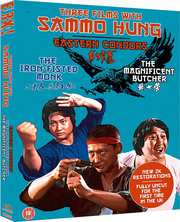




























































































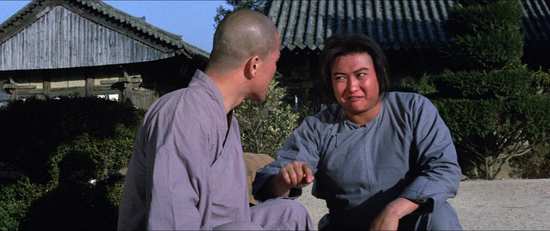
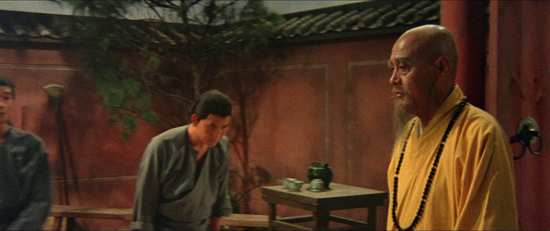
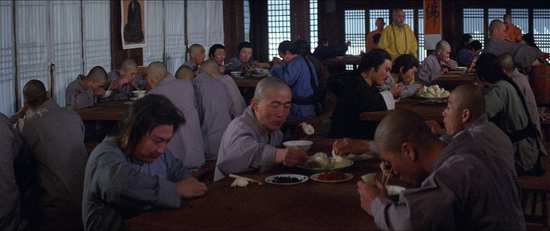
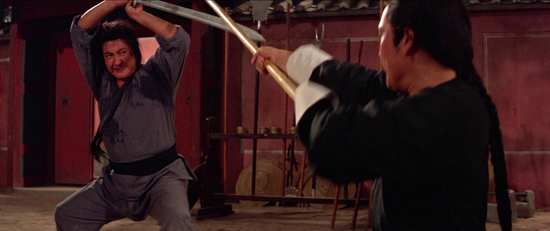
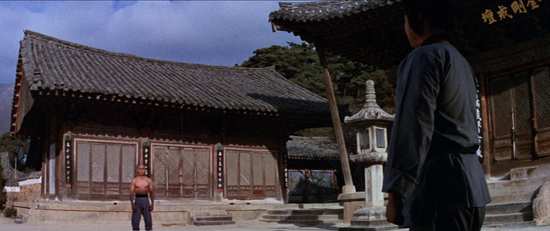
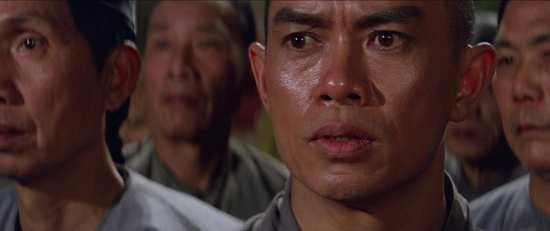
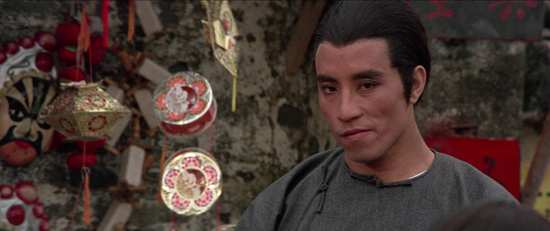
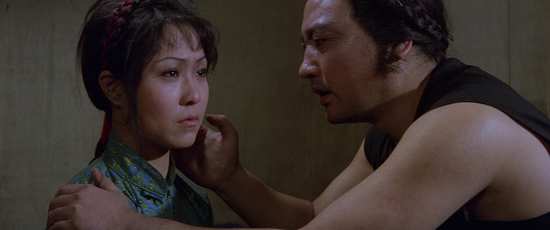
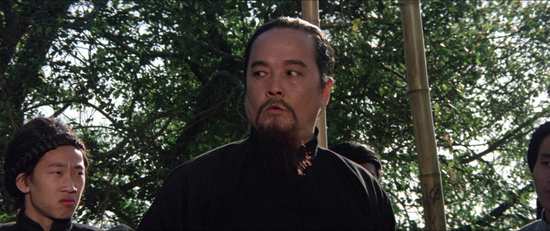
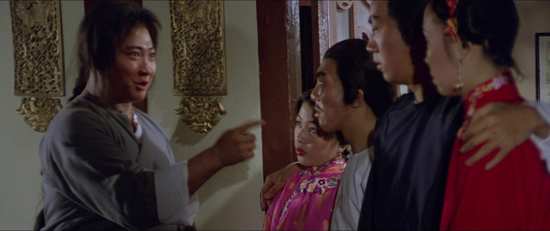
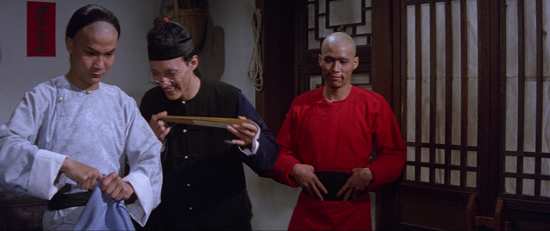
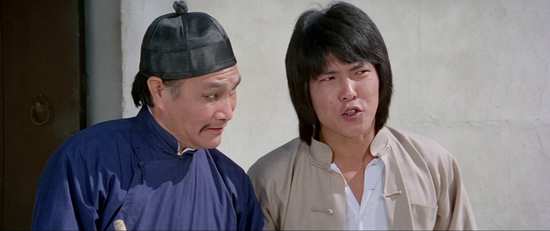
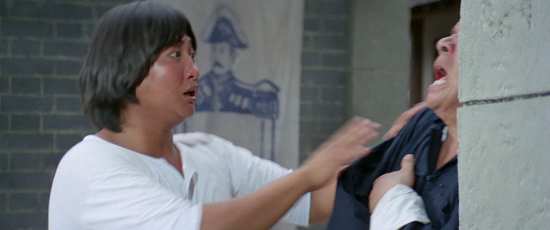
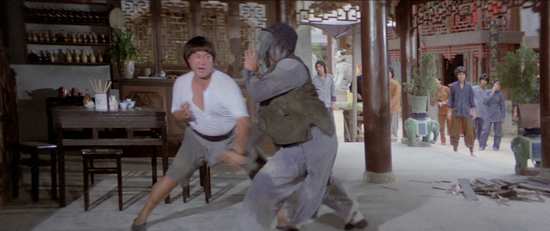
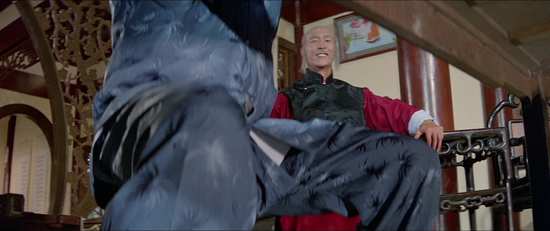
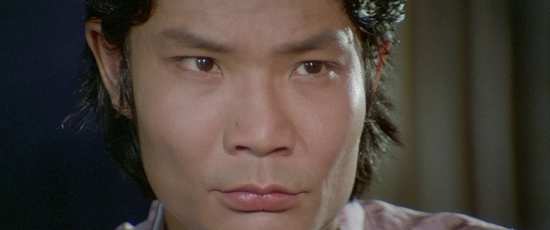
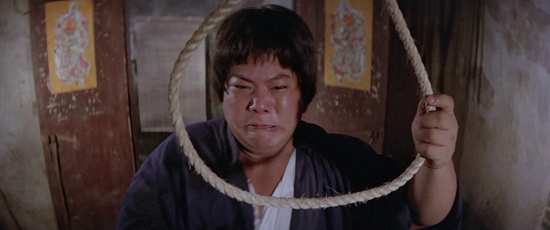
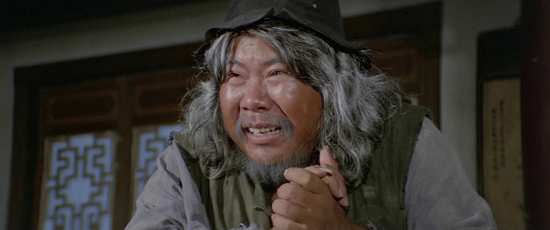
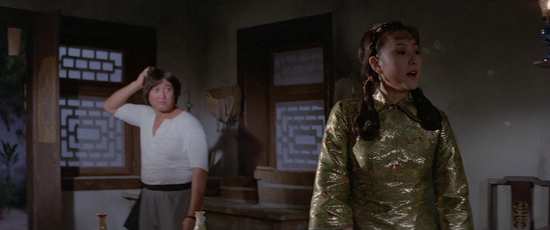
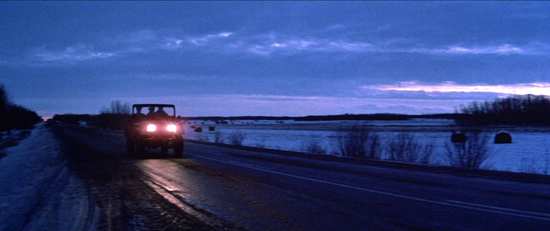
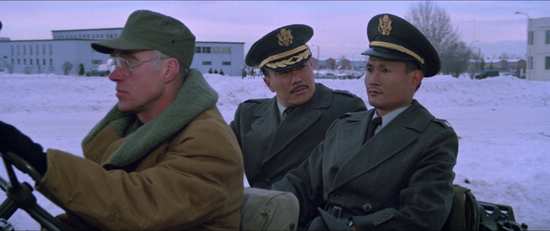
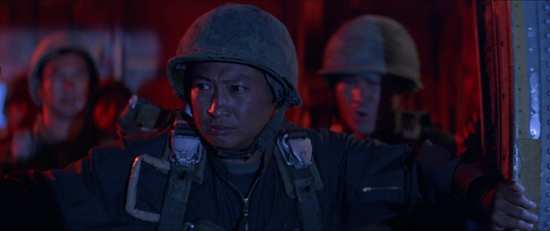
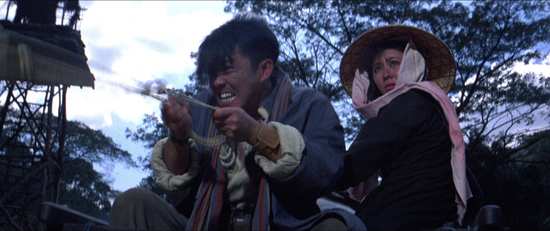
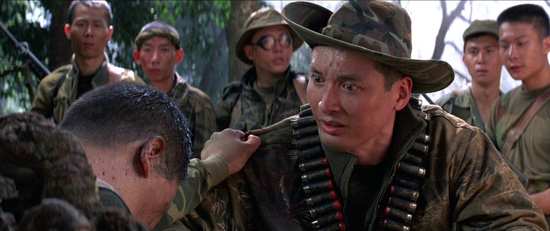
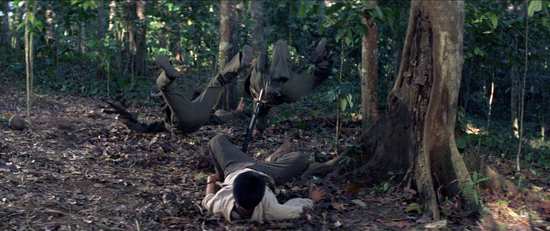
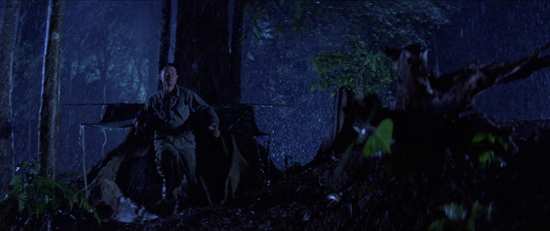
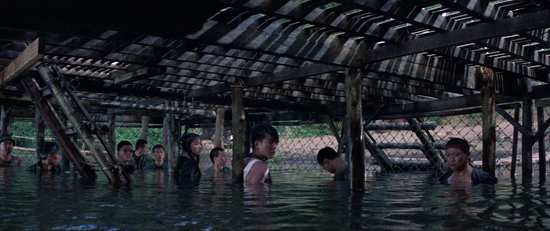
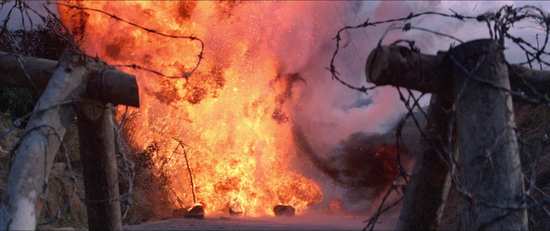
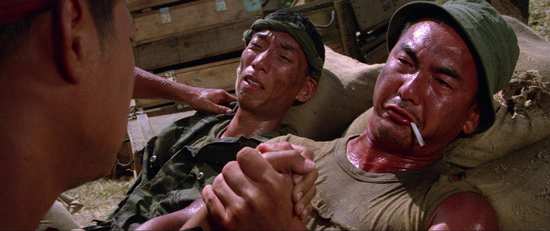
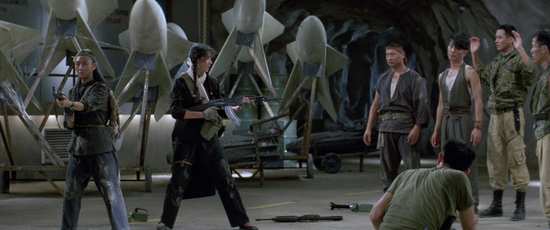
Your Opinions and Comments
Be the first to post a comment!